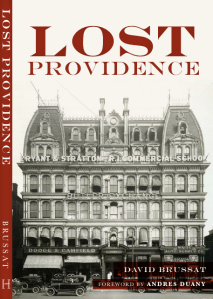
As a proud owner of one of the several editions of H.L. Mencken’s The American Language, I was tickled to see him cited in an essay about how, after a battle of centuries, American English has conquered English English. The writer of “American English has conquered the world,” by Geoffrey (the English version of Jeffrey) Wheatcroft, in The Spectator, is a Brit, of course, or his essay’s subtitle would not be “Should we give a hoot that our language has been corrupted – or should we back off and call it a day.”
American English, English American – shall we call the whole thing off?
Okay, so corrupted may be more apt than conquered. Or maybe not. The staid tongue of our Anglo forefathers has certainly been loosened by imports from across the Atlantic. Some will say that’s good, others not.
Let me get my edition of Mencken’s masterwork, open it up, and pilfer a passage of predictable (this is Mencken, after all) profundity. Referring, in his preface, to how “certain American pedants” consider his exposing the differences between the two linguistic cousins to be an “anti-social act,” Mencken writes:
All it indicates, stripped of sophistry, is a somewhat childish effort to gain the approval of Englishmen, a belated efflorescence of the colonial spirit, often commingled with fashionable aspiration. The plain fact is that the English themselves are not deceived, nor do they grant the approval so ardently sought for.
How topsy-turvy the relationship is today, with American English having largely swept the field not just in Britain but around the world. Even the French, who have an official government agency to protect their language from foreign invasion, are drowning in vocabulary exported from our side of the pond (often with an initial stop in Britain).
Every branch of human endeavor features battles for dominance in the field, with one nation eventually pulling ahead in the race to perfect an art, a science, a commercial application of a technological innovation, or a method of using language to express a thought. Since it happens among individual practitioners, so inevitably it must happen among nations. This is no less true of architectural development than of linguistic development. Britain, France and other European nations were once the source for most architectural developments in America and other new societies. Now the American skyscraper is on the march around the world. (Which is merely to admit that U.S. power is not always used as it ought to be.)
The essay by Wheatcroft, which reviews Matthew Engels’s That’s the Way It Crumbles: The American Conquest of the English Language, struck me as way too short. It fields several lists of examples of American words and phrases that have squirmed (or wormed) their way into English English. Here is one:
Plenty of Americanisms which we no longer even know are immigrants arrived in Edwardian times or during the Great War (“cakewalk,” “give the game away,” “railroad” as a verb, “sex appeal”). In the 1920s, there was “gangster,” “down and out” (which Orwell, another symbol of Englishry, used as [he means “in”] the title of Down and Out in Paris and London in 1933), and “give a hoot” (which Neville Chamberlain used in a letter in 1938). In the 1960s we got “back off,” “spin-off” and “blue collar” (100 years ago we called office workers “black coat” rather than “white collar” — which are both now meaningless, to look around an office).
I could wallow in this stuff for hours. My copy of Mencken’s The American Language: An Inquiry into the Development of English in the United States weighs in at well above 700 pages. It is the Fourth Edition, published in 1936, one of several updated editions published since the First Edition came out in 1919. The question is how, on top of his more popular journalistic fecundity, he managed to find time for this. (The link above is not to my copy but to a full text of the First Edition.)



Here in Italy, American English is often used in politics because the Italian words have all been exhausted and they need a fresh supply. So the government conducts a “spending review” and the legislature passes a “Jobs Act.” The leader of the party is called the “leader.” But by far the greatest intrusion of English is in advertising, where many products now have a tag line in the language, even if it doesn’t make any sense. A breath mint’s ads always close with “Freshness to Kiss.” And then there are the T-shirts that Italian young people like to wear and one often wonders if they have any idea what the words printed on them mean, often obscene. Oh well. There’s always Dante.
LikeLike
Ah, Steve! How sad, how funny! I have to wonder why American breath mint commercials don’t end with something as evocative. “Freshness to Kiss” in American English would be “Fresh Kiss,” which evokes both French kiss and fresh – that is, pushy in sex, or flirtatious. (Is that even allowed anymore?) I can imagine why the French try to protect their language with an official agency. Do the Italians try to do the same thing? Does the insertion of American words in Italian sentences disrupt the flow, or is more a matter of how mellifluous the voice itself is? I can imagine the narrator on the video of Venice that I posted a couple days ago saying “Base Closing Commission” in a way that rolls off the tongue.
LikeLike